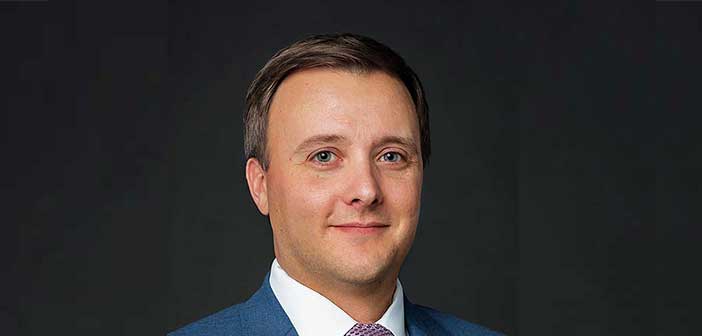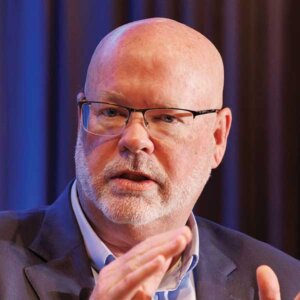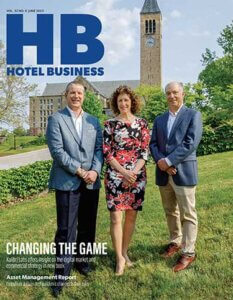Now that the pandemic is in the rearview mirror, asset managers have had to take a different approach to their work from the last few years. Hotel Business connected with Paul Breslin, managing director, Horwath HTL; Chris Hague, COO, Hotel Asset Value Enhancement Inc. (hotelAVE); and Chad F. Sorensen, managing director/COO, CHMWarnick, to find out what’s changed and their forecast for the rest of the year.
—Adam Perkowsky
How has the role of the asset manager changed post-pandemic?
Breslin: There’ s more owner involvement and a tremendous amount of tension from the owner. There’s a tremendous pressure on the asset manager from the ownership side. They’re like, “What can you do for us?” There’s more strategy about the right time to sell. We’re working very closely with a lot of the top-level brokers, and we can do some scenarios with them to try to see if it’s the right time to sell. We think that’s very strategic for our owners.
Hague: The typical post-pandemic asset manager likely has a greater depth of knowledge around debt covenant monitoring, cash flow/management and operations (especially zero-based staffing evaluations), as well as a granular-level understanding of various brand standards’ impact on the P&L statement. Our team is also perpetually adjusting contingency plans as the post-pandemic asset manager knows how quickly things can change. Preparation for the unknown is the new norm, especially as there is a lot of uncertainty about the second half of the year performance by operators.
Sorensen: There can be a misnomer that asset managers are only needed when times are tough, but the reality is, driving strategy and performance is as important when times are good—after all, that is when there is the greatest opportunity to be had from a performance standpoint. So, the fundamentals of our asset management platform have remained consistent, but the amount of time and effort we are exerting in certain areas definitely has changed. Everyone has heard the one about the light at the end of the tunnel being a train. Well, CapEx is one of the brightest lights at the end of the pandemic tunnel. Designing strategies around short- and long-term CapEx is at the forefront for all of our assets. Working to solve for the most effective operational changes post-pandemic, is, and will continue to be, a concerted focus for our team. And the challenging capital market also requires more time and focus from the majority of our team as we navigate those turbulent waters with our clients.
How is 2023 shaping up so far vs. your forecast at the beginning of the year?
Breslin: Several of our hotels are actually slightly down to budget. Most are about the same as last year. But May and the rest of the summer look very favorable. So it’s a little mixed bag. We have a couple of properties in Miami that are doing very well, but they will be down probably about 12% to 15% in total spend—a little bit of occupancy, a little bit of rate and a little bit of food and beverage combined. Generally, travel is up, and business travel and group are coming back, but there are still some properties that are a little bit wonky.
Hague: Occupancy and rate have outperformed budgeted expectations, along with F&B and ancillary revenue upside driving 50% of the overall revenue beat. Bottom-line performance has been favorable as well, but the outsized F&B growth at lower margins and labor increases have kept flow-through just under 50% of our top-line performance. Efforts to manage expenses include aggressive asset management; incorporating technology to reduce variable labor; converting contract workers to full-time employees; and increasing efficiency with staffing methods, as well as core practices of menu engineering and food cost analysis; revisiting scope; and competitive bidding for contracts and other operating costs. Our operational effectiveness teams have never been busier as many of our clients need to achieve certain trailing EBITDA to refinance in late 2023 or early 2024.
Sorensen: More versus less of our hotels are exceeding budget year-to-date. But, as has been the case throughout the pandemic recovery, the trajectory of performance recovery to pre-pandemic levels remains very market specific. When analyzing year-over-year performance, Q1 has been very strong, but we anticipate that gap to narrow as we progress through the year. Performance in Q1 of 2022 was impaired by the fears around the Omicron variant and by mid-Q2 of 2022, fears began to diminish, demand increased and performance in the back-half of the year was much stronger.
What are the biggest challenges hotels are facing at this time?
Breslin: Inflation is kind of a double-edged sword. It’s helping some hotels because the rates are higher, but it’s killing them in the food, labor and amenity costs. It’s also triggered a whole new level of creativity and people trying to find ways to be more automated and more sophisticated. If you’re an operator and you’re not using one of these payroll systems, you’re crazy because you have to cost your schedule before it gets posted. The nice thing is most of the efforts that are underway to try to save costs are also very environmentally friendly, and that’s a win-win for everybody and the guests are open to it.
Hague: At the ownership level, the biggest challenges are loan covenants/maturities and cash management to address capital project requirements. At the operational level, the return of group, business travel and the elite loyalty customer is driving top-line performance, but this demand comes with demands. The brands are listening more intently to their customers in this year, and additional costs, combined with increases in labor staffing, are challenging gross operating profit (GOP) margins as we saw when the public REITs reported very mixed Q1 GOP margin changes despite double-digit RevPAR growth.
Sorensen: One of the most obvious answers continues to be the availability of quality staffing and increased wage rates. Our operators are telling us they are starting to see increased candidate flow, but there is a large training and retention issue. These training and retraining efforts have an impact on productivity, which at a time when hourly wages are up to last year, can impact profitability. While this is a challenge in and of itself, labor speaks to a larger issue, which is trying to figure out the most effective operating paradigm to support the investment theses of our clients in this new environment. The hotel P&L has changed forever, and as an industry, I believe that we have a considerable way to go to solve operating structures that meet guests’ expectations, which can be successfully executed by the management companies and achieve owner return expectations. A hotel with a looming debt maturity has bigger issues, particularly given the current state of the capital markets.
We’re halfway into 2023. How do you see the rest of the year going?
Breslin: I’m a little concerned about the fall, but somewhat optimistic because of the conventions and corporate meetings that are going to happen. Leisure may drop off a little bit in the fall, but by then, business travel may be at full tilt. All the traditional places like near hospitals and colleges and extended-stay are still rock solid. One niche that’s still very strong is if you have a property that offers a very unique experience and facilities to do meetings, that’s still extremely popular right now.
Hague: Growth remains, but it has decelerated from the first half. The initial headwinds of a softening 90-day pickup are causing some concern, but fundamentals remain strong in the short term, and the booking window is beginning to elongate modestly. The full-year guidance from the public companies implies very minimal second-half RevPAR growth. Our view is that due to the lack of visibility and uncertainty of the intensity of the recession, public companies are being conservative about their outlook. Regardless, our hotels have contingency plans.
There will also be substantially more distress and real estate owned (REO) activity despite improving cash flow and fundamentals. Brands will continue to be flexible on renovations but will draw a harder line on operational brand standards.
Sorensen: It’s going to continue to be a slog. I anticipate year-over-year growth to slow as the back half of 2022 was considerably stronger than the first half, but I am cautiously optimistic. Again, market specificity is a caveat to every performance discussion, but despite some significant macro-level headwinds, groups continue to spend and it doesn’t look like the leisure traveler has quite yet decided to stay home this summer. The pacing of summer leisure demand is showing signs of fatigue, but I believe that opportunity continues to exist but it just may not be there for every destination. We are extremely optimistic that convention-oriented properties are well on the path to recovery given strong group pick across this segment.




